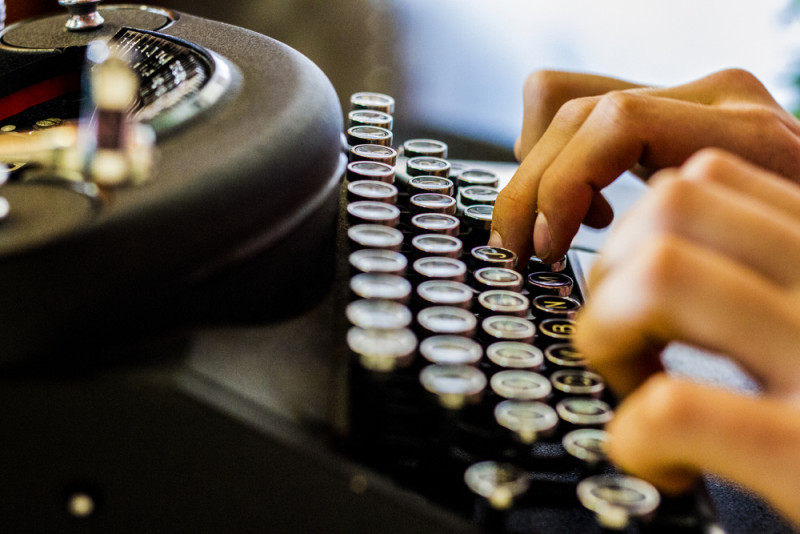Writing Through It: Why I’m Here
Written by |

PauloAlmeidaPhotography/Shutterstock
It’s been a long time coming for me to write directly about my life with cystic fibrosis in a body that gives me no choice but to balance illness with society’s definition of a normal life.
I am here, in part, to be honest, and to find connection within that honesty. Hopefully, this connection will allow even just one person to remember that they are not alone while living in a body so often touted as not worth saving, or not worth the consideration it would require to begin saving. The quieter the world tells me I should be, the louder I want to be.
I was born and raised in central Alabama, where I was diagnosed with cystic fibrosis at 6 months old. My mom started making pottery before I was in preschool, opting not to go back to work so she could stay home and take care of me when I was sick.
When I was 12, I was diagnosed with cystic fibrosis-related diabetes during an otherwise routine CF clinic visit. My blood sugar was flagged at over 600 mg/dL, wildly outside of the normal range.
As we all are, I was raised with both advantages and disadvantages that shaped my experiences. Growing up, I spent most weekends on a lake. But I never learned to swim, because the threat of pseudomonas bacteria kept me away from indoor swimming lessons. To this day, I still wear a life jacket while in the lake. My friends are unencumbered by the floatable foam that inches too far up, digging into my armpits. No matter how much privilege I’m surrounded by, I’m still within a short reach of my dysfunctional body.
Throughout my life, I’ve spent a substantial amount of energy trying to look away from my dysfunctions, to live in spite of them instead of alongside them. Recently, I’ve come to understand that living with trauma, pain, and something that makes me capital D “Different” requires the opposite of looking away. It requires direct eye contact, and sometimes, as with this column, it requires talking about my experiences to connect with other patients.
I’ve been doing a lot of reading lately about disability advocacy in spaces where disabled voices and stories are spotlighted. I’m looking for a deeper understanding of what living in an ableist society is like for those outside of that norm. Columns and essays from other patients and caregivers helped me find a space for listening and for empathy. For the first time, I read how people talked about lives like mine in a way that didn’t seek pity, but rather empathy. And from what I can tell, we can all use reminders to be a bit more empathetic, to walk with our palms up instead of clenching them tightly.
Since March 2020, more often than not, my body has felt tense with hurt. But shame only perpetuates more shame, oppression, and hurt. How are we ever supposed to accept disability as worthy of the space we make for it if we never discuss the space it takes up? How am I supposed to be proud of myself and my body if my truths are met with discomfort? How are we supposed to become comfortable if we never sit through the discomfort that every learning process begins with?
I’ll never claim to know all of the answers, but I hope that in writing about my experiences, we can become more comfortable with discovering solutions together. I’m here to talk about the space we take up. I am here to be louder than I’ve ever been.
***
Note: Cystic Fibrosis News Today is strictly a news and information website about the disease. It does not provide medical advice, diagnosis, or treatment. This content is not intended to be a substitute for professional medical advice, diagnosis, or treatment. Always seek the advice of your physician or other qualified health provider with any questions you may have regarding a medical condition. Never disregard professional medical advice or delay in seeking it because of something you have read on this website. The opinions expressed in this column are not those of Cystic Fibrosis News Today, or its parent company, Bionews, and are intended to spark discussion about issues pertaining to cystic fibrosis.








Randy Taylor
Very eloquent and beautifully heartfelt. (I am the father of a CF patient)
Gisele F Lapointe
I can empathize with you, having had the experience of living with my CF daughter until she passed away after a lobe transplant at age 43.
Judy Moreland
This sentence especially really resonated with me: "It’s been a long time coming for me to write directly about my life with cystic fibrosis in a body that gives me no choice but to balance illness with society’s definition of a normal life." I have always argued with people (who don't have CF) and who said that in CF, there are "good days and bad days." It seemed to paint the disease like other things in life such as employment or learning a new skill. It seemed to normalize my life with CF, and I don't think it's a normal life. Even on the days when I'm not having a CF exacerbation or pain in my back from coughing, I have CF. There are "better" days, to be sure, but as far as health goes, they are not good days. I can still be happy and fulfilled as a person with CF, and have very good days emotionally and spiritually, but I do not have good days and bad days with CF itself.